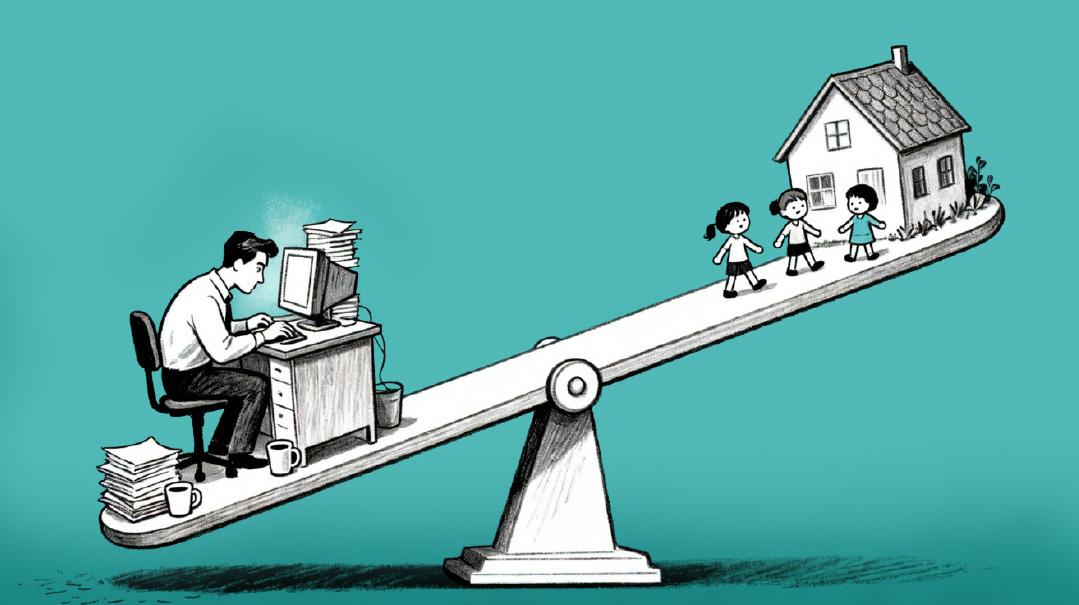The Dignity They Deserve

The day before the wedding, I was visiting with my mother. She reached for my hand, looked me in the eye, and said, “Suren’yu, mein kind, I love you very much, and you know how much I love Chavi. I’m not coming to the wedding.”
I could have written the Double Take story “Of Two Minds” (Issue 1012), and I could have written it from both sides. In the story, Kayla, an older kallah, is devastated when she is told that her grandmother, with whom she is close, can’t attend her chasunah. But her uncle points out that Savta is battling dementia and the event would be overwhelming for her.
I speak from my experience as an event coordinator, in another time and place: Weddings (actually, most simchahs) don’t tend to bring out the best in anyone. The joy, the pasted-on smiles, the singing hearts, the too-tight shoes, the dreams realized, the anticipated happiness, the “joys” of family dynamics, the naivete, the strain, the realities, the gifts, the money, the waste, the disappointments, and the timing — all these contribute to stress on steroids.
Throw in a bride on hormones — along with her mother, whose dress is still too tight and who’s on meds just to get through this. Add a dash of Oma (or Bubby, Grandma, or Nana) with unrealistic expectations, plus family members who are only too happy to add their own unsolicited opinions, and the recipe for disaster has just been written. Did I mention mechutanim?
Nothing happens in a vacuum. And it really does take a village. We forget that each and every part of any simchah has the potential to arm the satan to the teeth.
The scenario as presented in the Double Take story makes up only one (small) part of this picture, and given that everyone’s nerves are shot, this specific aspect could get blown out of proportion. I can certainly offer some suggestions that can help things go more smoothly, although everything depends on individual circumstances.
First and foremost, just be honest. Given how our simchahs usually go these days, especially with priorities being adjusted, how can you expect anyone to think clearly? The crowds, the noise, the lack of respect for people’s time, the clothing, the make-up and the coifs, all make it difficult for us to recognize ourselves in the mirror. How can we ask that of our beloved elderly, who are overtired at best and sundowning at worst?
You really want their participation? Here’s a list of must-haves, in no particular order.
- Do not leave them alone. Ever. Make certain that you know where the restrooms are and how close they are to your elderly loved ones.
- Have they eaten? And I don’t mean the shmorg. Keep them hydrated.
- Create a list of close friends and family members who can sit right next to Bubby or Zeidy— and have them make that commitment in half-hour increments.
- Double desserts if the people on that same list are able to identify other family members, along with friends, who will approach Bubby or Zeidy with mazel tov wishes. They’re not used to seeing any of these loved ones in their clothing and coifs (are you?), and their compromised hearing prevents them from distinguishing the sounds they need to feel comfortable.
- Your elderly loved ones deserve to have dignity (theirs, not yours) that is safeguarded. If they are marching down the aisle, make certain they can do so with grace. Provide chairs for them until it’s their turn and check that the runner (if there is one) is safe and smooth. Have seats been reserved for them in the front row? Are little ones sitting haphazardly on the floor crouched too close to their chairs?
- No surprises. If Papa is getting a brachah under the chuppah, tell him, and make certain someone will escort him there (watch out for steps) and return him to his seat afterward. Sometimes you might want to practice the brachah— especially if the lighting in that area is not clear. If he has a tremor, make certain someone else is holding the kos.
- Make certain that someone (everyone) has a list of whatever meds they are on. Every venue now has emergency numbers. Make sure you have one on you too, along with doctors’ info. Type it into your phone, along with their list of meds, in advance.
- Take family pics earlier in the evening, rather than later. Have someone there who makes sure it happens.
- Keep them away from the maddening crowds. Once they’ve been brought into the circle for the obligatory dance with their grandchild, take them back to their seat and have someone keep them company. If they need it (and who doesn’t?), give them a quiet corner. If they are participating in a mitzvah tantz, make certain there is a room where they can rest until that time comes. Those hours in between the end of the chuppah, the first dance, the meal, and more dancing can be longer than galus.
- Provide adequate and safe transportation both there and back. If need be, take them home early. Have a family member escort them both ways. They deserve it. The wedding has cost you this much— the budget has to include this. It’s not a luxury. Please don’t ask them to stay until you have said thank you and kissed the caterer good night.
I knew all this. It was my job. And then it was my turn.
Our daughter was getting married (she’s our fourth child) and we had the privilege of having our mothers (our fathers were, unfortunately, no longer alive) participate in our other three weddings — all sons, all out of town.
Because this wedding was taking place in our own hometown, I knew all the available venues intimately. I had worked in them all and had chosen the one best suited for our needs. Though my mother-in-law was fine, at that point my own mother was much more physically compromised.
That beautiful venue, which had an attached hotel to accommodate our out-of-town guests, and where I had reserved a room for my mother so she could rest when necessary, had no steps, at all, no elevators, and the restrooms were in a perfect location. I felt grateful that this would be the most comfortable and convenient setting for my mother.
Every decision about the evening was made with my mother’s needs in mind. I had even decided that — except for the bride and groom — there would be no riser for the head table, so my mother’s wheelchair would be accommodated, and she would be afforded the dignity and honor she deserved, without being made to look different.
The day before the wedding, I was visiting with my mother. She reached for my hand, looked me in the eye, and said, “Suren’yu, mein kind, I love you very much, and you know how much I love Chavi. I’m not coming to the wedding.”
I was shocked.
My parents were the sole survivors of their immediate families, and here we were, celebrating this glorious simchah. How could I celebrate without her? She was present — she was compromised, but she was present.
And that is why we have the most beautiful picture of our daughter on her way to her wedding, with her hair in an updo and her make-up and veil perfectly placed, wearing her navy blue shirt and jean skirt, bending down while my mother blessed her. (Yes, she changed into her gown when she got there…)
My mother was right. If we had been honest — and my mother was nothing if not honest — the best place for her at that point in her life was in her own surroundings, with her own schedule and timing, her own food at her own time, and her comfort and security, the way she so wisely recognized it.
My mother made that decision on her own, and it must have been so difficult for her to do that and to have to tell me.
Yes, our wedding was wonderful, and yes, we were privileged to host, along with our gracious mechutanim, our extended family and friends. But at the time, I felt simply devastated. I still feel the tug in my heart because my mother wasn’t there, because after all, this was now about me.
Except it shouldn’t have been. And I sadly recognized the difference when, a number of years later, we were privileged to take our youngest son to the chuppah, with our parents all there in spirit, watching from Above.
The older I get, the wiser my mother becomes.
(Originally featured in Mishpacha, Issue 1015)
Oops! We could not locate your form.







